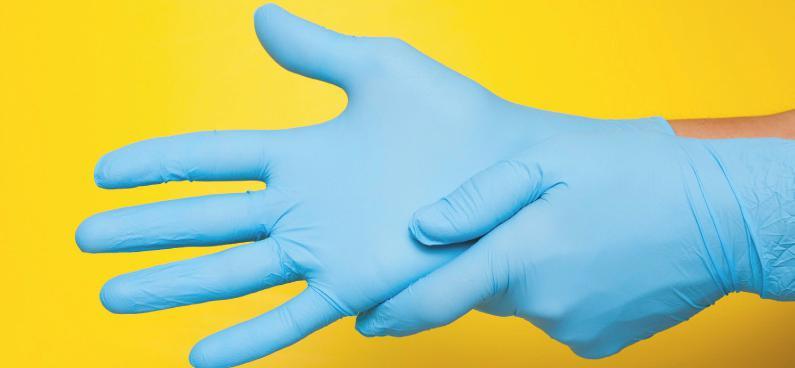NEWS
More than a third of UK cleaners have worked while they were ill Low-paid UK cleaners are dragging themselves to work when they are ill because many of them are unable to claim sick pay, research has found. A year-long investigation into conditions in the sector has revealed that more than a third of cleaners have worked while unwell.
Millions missing out Workers who earn more than £123 a week are legally entitled to statutory sick pay after a period of three days, although many employers across the economy implement their own more generous schemes. However, many of the 500 cleaners polled told researchers
they earned too little to qualify for statutory sick pay or that they could not afford to manage without three days’ pay before it kicked in. And in some cases, their employer had refused to pay. “They told us that if we got ill, they weren’t going to pay us or they were going to sack us,” said one survey participant while another said: “My friend fell while she was at work. She was at home for a month, and they didn’t pay her.”
No sick pay Elias Alvarenga, a Canary Wharf cleaner and Unite representative, said he commonly spoke to colleagues
who did not receive sick pay. “We have a lot of members working for different companies in this situation,” he said. Will Stronge, director of research at Autonomy which conducted the study, said:
“The UK has one of the least generous sick pay systems in the industrialised world. Millions of workers across the country are missing out on sick pay and this is making the workplace unsafe for everyone.”
Study finds hand washing before gloving hinders adherence
Putting on gloves without first washing the hands in a healthcare setting could be as safe as current strategies which require hand-washing before donning gloves, according to a new study. And current guidelines could actually be having an adverse effect on hand hygiene adherence claim the authors of
the study, which was published in the Journal of the American Medical Association. Most healthcare policies decree that healthcare staff should first wash their hands before putting on gloves. US researchers carried out a randomised trial among 3,790 healthcare personnel across 13 hospitals where a percentage of participants
• Au Royaume-Uni, des agents de nettoyage mal payés se forcent à travailler quand ils sont malades parce qu’ils ne peuvent pas réclamer des allocations santé, indique une enquête. • Selon une nouvelle étude, le port de gants sans un lavage préalable des mains dans un contexte de santé présenterait le même degré de sécurité que les stratégies actuelles prévoyant le lavage préalable des mains.
4 | November 2023 | ECJ
adhered to a ‘direct-gloving’ strategy whereas the others adopted a method whereby hand hygiene was performed before donning gloves. When questioned about the strategies, 68 per cent of participants saw potential benefits in the direct-gloving policy such as increased time and cost efficiency, lower levels of
• Eine Untersuchung hat ergeben, dass sich schlecht bezahlte britische Reinigungskräfte zur Arbeit schleppen, wenn sie krank sind, weil viele von ihnen nicht in der Lage sind, eine Lohnfortzahlung im Krankheitsfall zu verlangen. • Laut einer neuen Studie könnte das Anziehen von Handschuhen, ohne vorher die Hände zu waschen, in einer medizinischen Umgebung genauso sicher sein wie aktuelle Strategien, die zuerst das Händewaschen erfordern.
skin irritation and improvements in staff satisfaction. Around 60 per cent perceived no risks and had concerns about a direct-gloving strategy if it were proven to be safe. The results found both methods had a low overall prevalence of potential pathogenic organisms on gloves, and that there was no significant difference in the total bacterial colony counts between the two strategies. The authors concluded a direct-gloving policy was “as safe as the current strategy requiring hand washing before donning gloves in areas in which hand hygiene rates were otherwise high”. However, the study also noted a direct-gloving strategy should not be used in emergency departments or other areas where overall adherence to hand hygiene and glove use is low until further studies take place.
• Secondo una ricerca, gli addetti alle pulizie del Regno Unito a bassa retribuzione si trascinano al lavoro quando sono malati perché molti di loro non sono in grado di richiedere l’indennità di malattia. • Secondo un nuovo studio, indossare i guanti senza prima lavarsi le mani in un ambiente sanitario potrebbe essere sicuro quanto le attuali strategie che richiedono prima il lavaggio delle mani.























